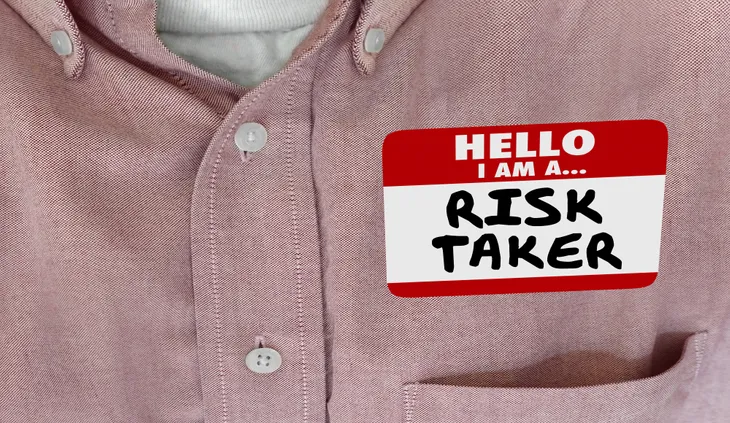While movies and TV shows often portray psychopaths as villains, not all are so blatantly evil in nature; most display psychopathic characteristics on a much subtler level. So subtle, in fact, that these individuals can be quite hard to detect—you may even be friends with or work alongside one.
Although the terms ‘psychopath’ and ‘sociopath’ are often used interchangeably, there are some significant differences between the two. Namely, psychopaths don’t have a conscience, and also have much less regard for others when compared to sociopaths. And while a person can’t be medically diagnosed as a psychopath (it is instead referred to as antisocial personality disorder), the following are 14 telltale traits to look out for.
1. Charming
One of the primary reasons that psychopaths are so hard to detect is because they blend in so well. When you meet one, they will tend to come across as extremely charming. In social situations, Psychology Today says they are “great at making small talk” and their “quick wit tends to draw people to them.”
They also tend to tell interesting and believable stories that paint themselves in a good light. For these reasons, most psychopaths are well liked and people tend to feel good after having a conversation with them.
2. No Guilt or Remorse
As mentioned in the introduction, psychopaths don’t have a conscience (whereas sociopaths do). Because of this, they will not feel any guilt, remorse, or shame when they do something wrong or hurt others.
In fact, MindBodyGreen.com indicates that they actually seem to enjoy engaging in these behaviors. “Psychopaths know that their behavior hurts others. That’s why they do it,” the source says. And if they do happen to apologize, it’s only “to save face, or if they still need something from you.”
3. Arrogant and Narcissistic
Psychopaths are very arrogant and narcissistic individuals. They have a grandiose sense of importance and self-worth, often believing that they are at the center of the universe, and, as such, that the usual rules don’t apply to them.
They also believe they are better—and more deserving—than everyone else, and have a misplaced sense of entitlement. For instance, due to “grandiose ideas about their potential,” Psychology Today says they might “believe they deserve to be the CEO.”
4. Promiscuous
Psychopaths also tend to be quite promiscuous, engaging in “A variety of brief, superficial relations” and “numerous affairs,” says SociopathicStyle.com. Additionally, the source says they may maintain “several relationships at the same time” and take “great pride at discussing sexual exploits or conquests.”
As a result of their promiscuous and non-committal behaviors (among other things, like being undependable and unreliable), it’s not uncommon for psychopaths to have multiple short-term marital relationships throughout their lives.
5. Manipulating
Psychopaths are master manipulators, especially of other people’s emotions. For instance, Psychology Today says that they often use “subtle yet effective” flattery as a way to “persuade others to do things they wouldn’t normally do.” Additionally, they “use guilt trips or gain sympathy to meet their needs.”
As Power of Positivity explains, psychopaths are able to act in such a way because, “Without an ‘inner compass’ directing them to what’s right or wrong, they’ll often manipulate and deceive someone for no other reason than personal amusement.”
6. Constant Need for Stimulation
Due to their tendency to get bored easily, psychopaths have a constant and excessive need for stimulation and excitement. This thrill-seeking behavior often goes far beyond a typical adrenaline junky lifestyle of skydiving and bungee jumping.
“Psychopaths are addicted to acts that stimulate their insatiable desire for danger,” says Power of Positivity, which means engaging in risky and often illicit activities that could cause potential hard to themselves or others—simply for the fun of it!
7. Pathological Lying
Despite how charming psychopaths can be, you can’t really trust anything that comes out of their mouths. Why? Because there’s a good chance it’s all lies. “Psychopaths lie constantly,” says MindBodyGreen.com, “even when the truth would be a better story — even when there’s absolutely no reason to lie.”
The source goes on to say that lying is their “default mode” and they don’t much care if you question them or uncover the truth, because “they will promptly turn it back around on you for being paranoid and over-analyzing everything.”
8. Limited Range of Emotions
Although psychopaths are adept at mimicking people’s emotions, they are incapable of sincerely feeling them—especially deeper emotions such as compassion, empathy, and kindness. As a result, Psychology Today says they may come across as “cold and unemotional.”
Psychopaths are, however, capable of accessing shallow feelings like frustration, jealousy, anger, and rage. These emotions are often exhibited through “…a fight or angry outburst when a desired outcome is not achieved quickly,” says clinical psychologist Dr. Carla Marie Manly in speaking with Bustle.com.
9. Lack of Empathy
Psychopaths have a complete lack of empathy, which is defined by Oxford Dictionaries as “The ability to understand and share the feelings of another.” As a result, they are able to hurt and manipulate others without feeling bad about it, because they are numb towards the pain they have caused.
“If someone dares approach them to discuss their wounds,” says Forbes, “a psychopath isn’t likely to accept any responsibility, which can make their reactions especially toxic.”
10. Irresponsible
As mentioned previously, psychopaths are incapable of taking responsibility for their actions. In fact, they will try to pass the blame onto the victim. For instance, Psychology Today says, “A psychopath may say that someone ‘deserved’ to be treated poorly.”
In addition, psychopaths lack responsibility when it comes to obligations and commitments. These include “not paying bills, defaulting on loans, performing sloppy work, being absent or late to work, failing to honor contractual agreements.”
11. Impulsive
Psychopaths are highly impulsive individuals, spending very little time “weighing the pros and cons of a course of action or considering the possible consequences,” says Psychology Today. The source indicates that they engage in such impulsive acts in order to “achieve immediate satisfaction, pleasure, or relief.”
And while each of us can be a bit impulsive at times, making choices out of spontaneity and adventure, this is different than what psychopaths do. Citing the American Psychological Association, Bustle.com says psychopaths engage in what’s known as ‘dysfunctional impulsivity,’ “which is characterized by erratic disorderliness, distraction, and inaccurate decision making” says SociopathicStyle.com.
12. Poor Behavioral Controls
As mentioned earlier, psychopaths are prone to angry and aggressive outbursts. Psychology Today explains that this is because “psychopaths are highly reactive to perceived insults or slights,” but they have weak inhibitory controls over their behaviour, which means “the slightest provocation is sufficient to overcome them.”
So when they experience frustration, jealousy, failure, or criticism, the source says they respond with “sudden violence, threats or verbal abuse.” These outbursts are often extreme, but short-lived, causing the individual to “quickly act as if nothing out of the ordinary has happened.”
13. Behavior Problems when Young
Many of the traits mentioned in this article don’t just suddenly begin occurring in adulthood, however. According to SociopathicStyle.com, psychopaths tend to exhibit them early on in life, often before the age of 13.
These behaviors include “lying, theft, cheating, vandalism, bullying, sexual activity, fire-setting, glue-sniffing, alcohol use, and running away from home.” As a result, they may find themselves in trouble with the law—and potentially serving prison time—at a young age.
14. Criminal Versatility
Although less than one percent of the overall population is considered psychopaths, Power of Positivity indicates, “Psychopaths make up as much as 25 percent of all male offenders in federal prisons,” often serving several sentences throughout their lives. At this point in the article, it should come as no surprise as to why, given that they seek out risky behaviors, have aggressive outbursts, and a complete disregard for the law.
Not only are they habitual criminals, though, psychopaths are also criminally versatile, meaning that they are often “active in multiple types of crime,” says HealthyPlace.com. And while they may get caught spend time in jail for one wrongdoing, they take great pride in getting away with their other illicit activities.

















